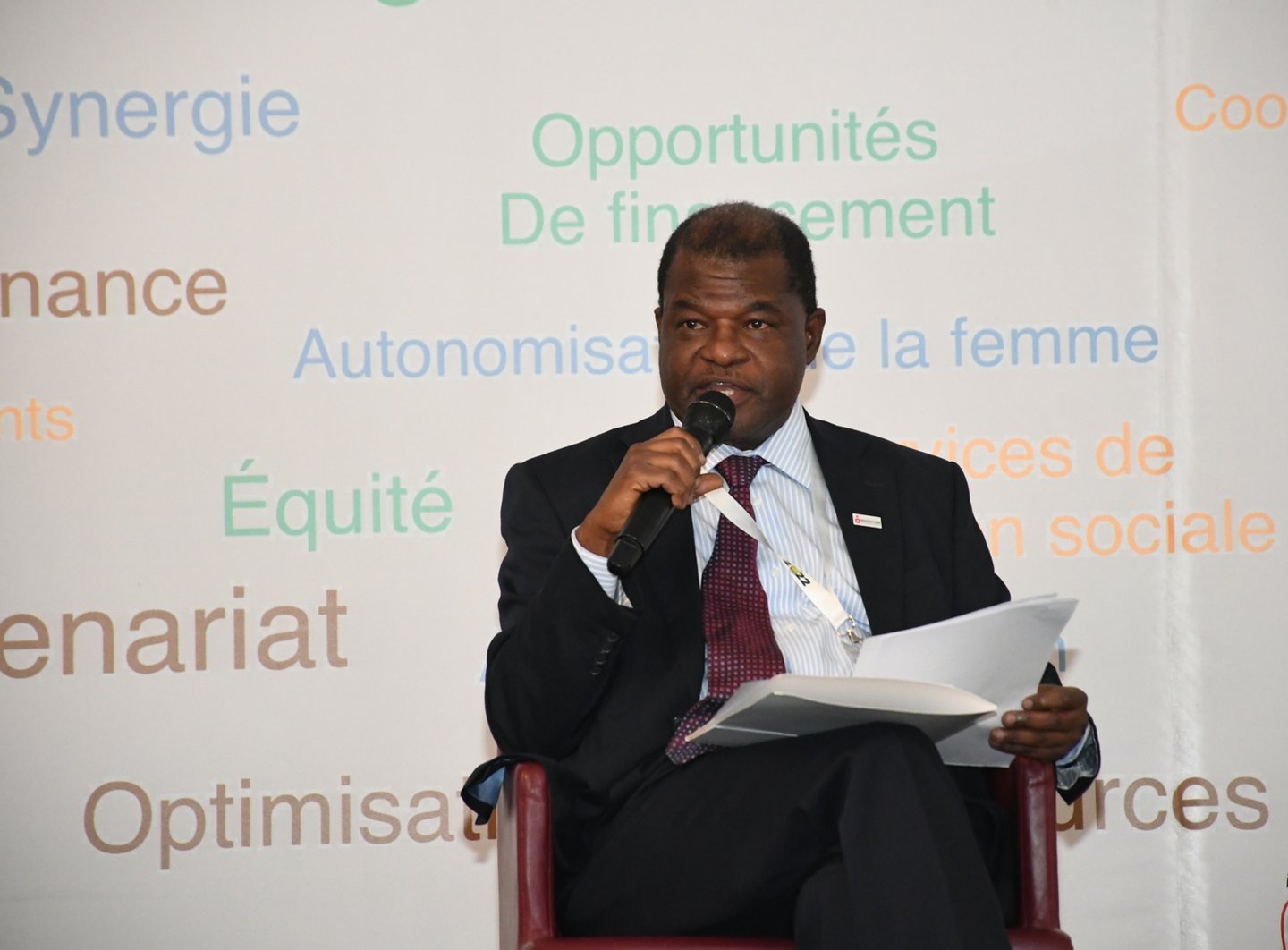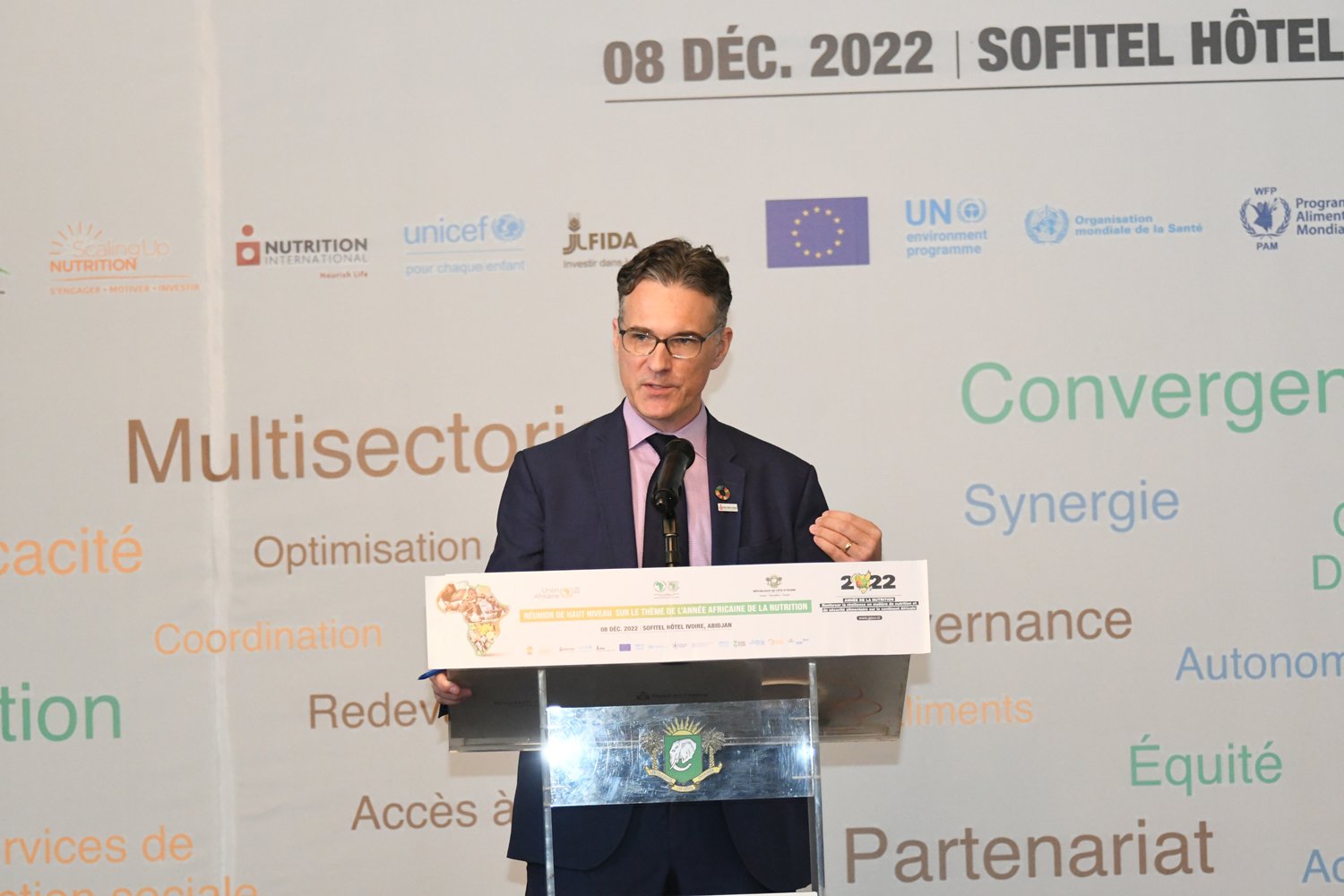News
Nutrition International highlights Canada-Africa partnership to advance nutrition, health and education goals
November 18, 2024
WP_Term Object
(
[term_id] => 48
[name] => News
[slug] => all-news
[term_group] => 0
[term_taxonomy_id] => 48
[taxonomy] => news-category
[description] => Stay up to date on our announcements, newest projects and partnerships, and news about how we’re making a difference in the lives of people around the world.
[parent] => 0
[count] => 272
[filter] => raw
)
Nutrition International affirms commitment to end malnutrition in Africa
Nutrition International reaffirmed its commitment to work with the African Union and its member states toward a shared objective of ending malnutrition in the continent at the AU High-Level meeting on the Africa Year of Nutrition in Cote d’Ivoire.
Posted on December 22, 2022
ABIDJAN, Cote d’Ivoire – Nutrition International affirmed its commitment to work with the African Union (AU) and its member states to achieve a shared objective of an Africa free from all forms of malnutrition. The organization participated in the AU High-Level Meeting on the Africa Year of Nutrition that was hosted by the Government of Cote d’Ivoire in collaboration with the African Union Commission, the African Development Bank and the African Leaders for Nutrition (ALN) initiative, in Abidjan, from 6-8 December, 2022.
During the opening ceremony, Dr. Richard Pendame, Regional Director, Africa for Nutrition International stated that the organization had committed to support the Year of Nutrition in three areas:

“We need to focus on our long term vision – a continent that benefits from strong nutrition programs, well-coordinated nutrition systems, and populations who, supported by a foundation of good nutrition, are able to learn, earn and lead.
—Dr. Richard Pendame, Regional Director, Africa, Nutrition International
“The need for real action is great,” said Dr. Pendame as he noted that the current food crisis had left many women, adolescent girls and children without the vital nutrients they require to survive and flourish. “But we must go further, and focus not only on short term crises, but our long-term vision – a continent that benefits from strong nutrition programs, well-coordinated nutrition systems, and populations who, supported by a foundation of good nutrition, are able to learn, earn and lead.”
Civil society organizations are transforming Africa’s nutrition landscape and empowering citizens to hold their leaders to account on their nutrition commitments. Through their programs, civil societies are paving the way for more gender responsive nutrition actions that address the barriers that many women and girls face.

Nutrition International’s President and CEO, Joel Spicer moderated a high-level session on Nutrition for Growth that involved representatives of AU member states, where he outlined four action points to address malnutrition in Africa:
At the end of the high-level meeting, AU member states and partners adopted the Abidjan Declaration on the Africa Year of Nutrition 2022, in which they strengthened their commitment to improve nutrition and food security in Africa.